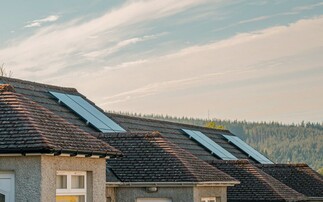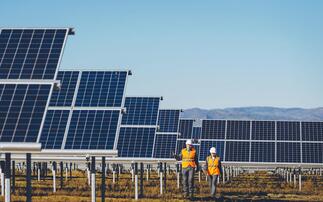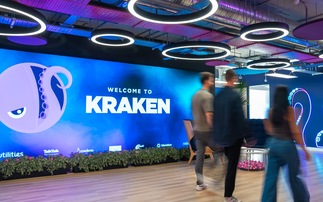
Industry Voice: By taking more control of their electricity demand, businesses can contribute to a more sustainable energy future while also reaping major financial benefits, according to Bryt Energy
As the UK moves closer to its target of net zero emissions by 2050, major changes are coming to the electricity system.
With more renewables on the grid than ever before, the energy transition is moving us away from a linear, generator-to-consumer model, built around planned and controllable fossil fuel-powered generation. Instead, businesses are now navigating a more decentralised energy landscape, with localised on-site generation and technology, powered by less predictable renewable sources.
For many businesses, this will mean taking a new approach to electricity procurement. By adopting a proactive mindset in which businesses take a more holistic approach, anticipating their usage and working more closely with suppliers, they can collaborate to find contracts that best suit them in this changing energy landscape.
To help them navigate this changing landscape, here are three things businesses should consider for their electricity procurement strategy to help them take advantage of the net zero energy transition:
1. Take a holistic approach to your business' energy strategy
As the electricity system evolves, so will consumption patterns. Achieving net zero will involve a major uptake of transitional technologies - such as electric vehicles and heat pumps – which are likely to result in drastic changes to businesses' electricity usage. To thrive in a net zero future, organisations will need to adopt a more holistic approach to energy management, anticipating and adapting to the volume and profile changes that will arise as their consumption patterns change.
Understanding your current position is a key step to recognising how this may change. By leveraging data-driven insights around your operations, from technologies like smart meters, your business will be prepared to create this holistic view, helping to create a more accurate forecast for your electricity usage.
Every business' needs will vary slightly, and with careful consideration of where you are now and how any changes could impact your electricity needs in the future, you'll be better equipped to make informed decisions which will supercharge your procurement strategy.
Challenge yourself to think ahead; ask, what are some changes you anticipate making in your operations? How might the energy transition affect your electricity usage going forwards, and how could you potentially incorporate your other partners to feed into these expected changes?
By adopting a future-minded approach, your business will be able to effectively navigate a changing energy landscape, potentially seizing new financial opportunities all whilst contributing to the net zero transition as a Good Grid Citizen.
2. Work with your supplier to find the right contract
Along with this holistic approach, something as simple as communicating with your supplier can make all the difference in your electricity procurement strategy. As the electricity system evolves, your supplier can help you to navigate a changing market, adapt to new electricity demands and maintain a high level of control over your usage.
Using your understanding of your operations, electricity suppliers can help build the right mechanisms into your business' electricity contract.
You can help your supplier by letting them know:
- How much electricity you're planning on using, and when.
- If you're planning on changing anything – from installing low carbon technology such as on-site PV, to changing shift patterns.
- If you're expecting any periods of dramatically increased or decreased usage, such as a closure of premises for a length of time.
This may mean embracing new variations of electricity contracts, as traditional formats may not allow for changing usage or low carbon technology and could leave both businesses and suppliers exposed within an evolving market, possibly resulting in additional fees or premiums to cover any uncertainty.
For many that have traditionally focused on fixed contracts, flexible options may now be suitable, but it's important to consider which truly matches your business needs.
By working with your supplier, they can help you execute a purchasing strategy that empowers your business to react to the current market and choose a contract that will suit you now and going forwards.
3. Take control of your demand
To effectively navigate a system powered by less predictable renewable sources, businesses will have to consider not only how much electricity they use, but also when they use it. Using quality data and insights from your operations and working with your supplier, your business will be well positioned to proactively manage your usage alongside combinations of low carbon technologies – ensuring resilience in the face of changing market dynamics while actively supporting the transition to a sustainable energy future.
Your business could consider opportunities to integrate and optimise electricity assets - such as building management systems, heat pumps, on-site solar installations and energy storage systems - in response to market price signals. Assets can be managed in harmony through optimisation solutions to reflect grid demands, maximising their value and that of your electricity contract, whilst helping reduce usage during peak price and carbon periods.
In doing so, your business will not only gain control over your electricity demand, reaping the financial benefits of a proactive procurement strategy, but also help contribute to a more sustainable energy future.
You can find out more about the key types of low carbon technologies your business could implement here.
Take charge
The energy industry is undergoing significant change, and this is undeniably going to impact electricity procurement. Traditional contracts and approaches may no longer be sufficient to meet the needs of forward-thinking businesses. However, through a holistic view of your operations and energy strategy, a collaborative approach with your electricity supplier, and the use of low carbon technology, there's never been a better time to unlock value from your operations – all while contributing to a sustainable energy future. By adopting a proactive mindset to embrace these changes, you can position your business to not only support, but also benefit from the transition to a net zero energy system.
To find out more, read our free guide: Navigating The Net Zero Energy Transition And What It Means For Your Business, Part 2: Take Control of Your Energy.
This article is sponsored by Bryt Energy.







